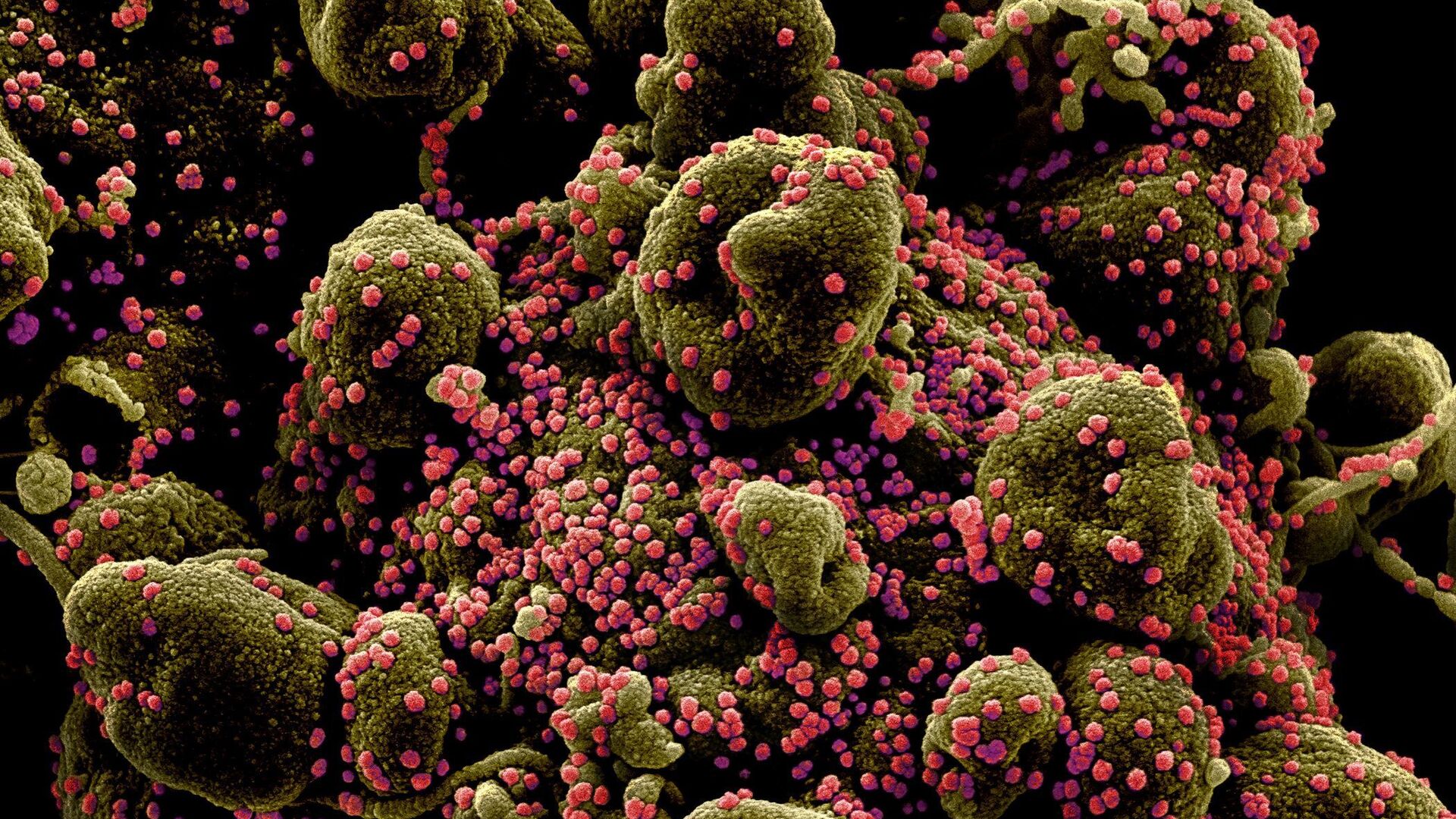https://sputniknews.in/20231023/brain-eating-amoeba-kills-karachi-resident-5022107.html
'Brain-Eating Amoeba' Kills Karachi Resident
'Brain-Eating Amoeba' Kills Karachi Resident
Sputnik India
The health department in Pakistan's southern Sindh province announced on Sunday that a resident of Karachi died on Saturday from Naegleria fowleri, also known as the "brain-eating amoeba" disease, according to local media.
2023-10-23T16:26+0530
2023-10-23T16:26+0530
2023-10-23T16:26+0530
karachi
pakistan
south asia
brain drain
hospital
national assembly of pakistan
https://cdn1.img.sputniknews.in/img/07e7/0a/17/5024532_0:0:2100:1182_1920x0_80_0_0_7ebf351046dcacef1dd2efe15ade46d3.jpg
The health department in Pakistan's southern Sindh province announced on Sunday that a resident of Karachi died on Saturday from Naegleria fowleri, also known as the "brain-eating amoeba" disease, according to local media.Freshwater ecosystems such as lakes, ponds, rivers and hot springs, as well as improperly maintained swimming pools and pipelines carrying tap water, are where Naegleria fowleri can be found.According to a preliminary report from the Directorate General Health Services Sindh, Adnan Tariq, a 45-year-old shopkeeper from Karachi, developed a fever on Wednesday night. By Thursday morning, his temperature had come down a little, but later in the day he was taken to a private hospital because of muscle weakness and an "altered state of consciousness".Following that, Tariq was admitted to the intensive care unit at Agha Khan Hospital on Thursday and stayed there until Friday.The investigation revealed no evidence of Tariq ever swimming or going to a farm where he might have gotten sick from contaminated water. The report states that the deceased would frequently buy water from tankers and also relied on water deliveries from a main pump to his residence.According to the report, it is highly probable that the patient contracted the infection through water during ablution at work, as supported by the evidence and observations.Officials should urgently inspect pipelines for leaks and promptly repair them to ensure that sewage water does not contaminate drinking water. Consumers are also urged to frequently treat their water tanks with bleaching powder.In Pakistan, where the first instance was reported in Karachi in 2008, the "brain-eating amoeba" is a relatively recent phenomenon.
https://sputniknews.in/20231023/cipher-case-imran-khan--ex-pakistani-fm-qureshi-indicted--5018452.html
karachi
pakistan
south asia
Sputnik India
feedback.hindi@sputniknews.com
+74956456601
MIA „Rossiya Segodnya“
2023
Swapna Nair
https://cdn1.img.sputniknews.in/img/07e7/09/12/4320104_0:0:681:681_100x100_80_0_0_ca8a7d4d582609272840ffdd1cde7278.jpg
Swapna Nair
https://cdn1.img.sputniknews.in/img/07e7/09/12/4320104_0:0:681:681_100x100_80_0_0_ca8a7d4d582609272840ffdd1cde7278.jpg
News
en_IN
Sputnik India
feedback.hindi@sputniknews.com
+74956456601
MIA „Rossiya Segodnya“
Sputnik India
feedback.hindi@sputniknews.com
+74956456601
MIA „Rossiya Segodnya“
Swapna Nair
https://cdn1.img.sputniknews.in/img/07e7/09/12/4320104_0:0:681:681_100x100_80_0_0_ca8a7d4d582609272840ffdd1cde7278.jpg
brain-eating amoeba, karachi, health department in pakistan, southern sindh, naegleria fowleri, freshwater ecosystems, lakes, ponds, rivers, hot springs, swimming pools, pipelines, brain infection, directorate-general health services sindh, "altered state of consciousness,ventilator, pakistan,
brain-eating amoeba, karachi, health department in pakistan, southern sindh, naegleria fowleri, freshwater ecosystems, lakes, ponds, rivers, hot springs, swimming pools, pipelines, brain infection, directorate-general health services sindh, "altered state of consciousness,ventilator, pakistan,
'Brain-Eating Amoeba' Kills Karachi Resident
There is a new case of 'brain-eating amoeba' in Karachi that killed a resident. Nevertheless, there is no evidence indicating that the victim ever engaged in swimming or visited a farm where the possibility of contracting the disease from contaminated water could have arisen.
The health department in Pakistan's southern Sindh province announced on Sunday that a resident of Karachi died on Saturday from Naegleria fowleri, also known as the "brain-eating amoeba" disease, according to local media.
Freshwater ecosystems such as lakes, ponds, rivers and hot springs, as well as improperly maintained swimming pools and pipelines carrying tap water, are where Naegleria fowleri can be found.
The bacterium can enter the human body through the nose and cause naegleriasis, a rapid brain infection that is usually fatal.
According to a preliminary report from the Directorate General Health Services Sindh, Adnan Tariq, a 45-year-old shopkeeper from Karachi, developed a fever on Wednesday night. By Thursday morning, his temperature had come down a little, but later in the day he was taken to a private hospital because of muscle weakness and an "altered state of consciousness".
Following that, Tariq was admitted to the intensive care unit at Agha Khan Hospital on Thursday and stayed there until Friday.
The report stated that "his condition worsened, and he was placed on a ventilator." The patient passed away early on Saturday.
The investigation revealed no evidence of Tariq ever swimming or going to a farm where he might have gotten sick from contaminated water.
The report states that the deceased would frequently buy water from tankers and also relied on water deliveries from a main pump to his residence.
According to the report, it is highly probable that the patient contracted the infection through water during ablution at work, as supported by the evidence and observations.
The officials are required to assess both the chlorine level and the chlorination process in all major reservoirs that supply water to the city, as stated in the report.
Officials should urgently inspect pipelines for leaks and promptly repair them to ensure that sewage water does not contaminate drinking water. Consumers are also urged to frequently treat their water tanks with bleaching powder.
In Pakistan, where the first instance was reported in Karachi in 2008, the "brain-eating amoeba" is a relatively recent phenomenon.
Data from the Sindh Health Department's Naegleria Surveillance and Inspection Team shows that more than 100 people have died from the virus in the city since it was first detected, including at least 47 in the past six years.



